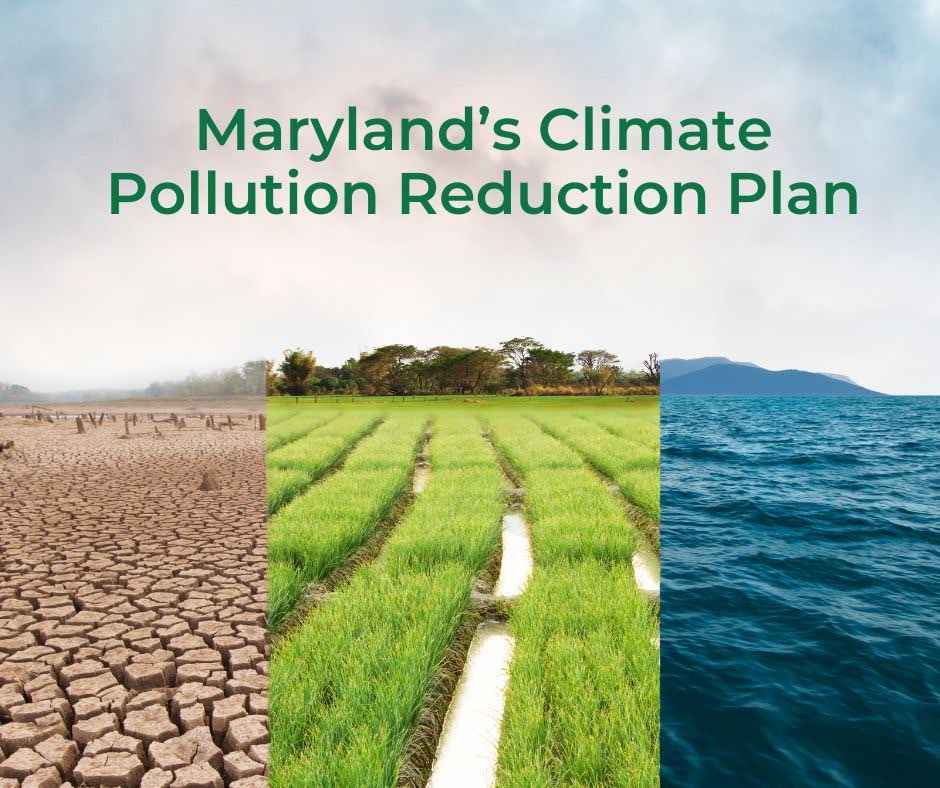
Maryland's plan is to achieve its near-term climate goals and place the state on a path to achieve net-zero emissions by 2045. New policies will transition the state from the fossil fuel era of the past to a clean energy future. Marylanders will benefit from cleaner air, improved public health, lower energy costs, and more jobs with higher wages.
As detailed in the plan, new policies will generate up to $1.2 billion in public health benefits, $2.5 billion in increased personal income, and a net gain of 27,400 jobs between now and 2031 as compared with current policies. Average households will save up to $4,000 annually on energy costs. Air quality and public health outcomes ill improve for everyone, especially people living in historically underserved and overburdened communities.
Maryland has already reduced greenhouse gas (GHG) emissions - also called climate pollution - faster than almost any other state, achieving a 30% reduction in statewide GHG emissions from 2006 levels by 2020. The Climate Solutions Now Act (CSNA), passed into law in 2022, advances the most ambitious GHG reduction goals of any state in the nation. Learn how Maryland is allocating state funds for greenhouse gas reduction efforts in the Greenhouse Gas Reduction Spending Analysis.
The law requires Maryland to reduce statewide GHG emissions 60% from 2006 levels by 2031 and achieve net-zero emissions by 2045 but does not outline a dedicated funding source to implement the plan. The Maryland Department of the Environment (MDE) is responsible for producing the plan to achieve the state’s GHG reduction goals but achieving the goals will require a whole-of-government approach.
Click here to view the pdf version of this plan and here for the online version.
For list of appendices click here.
Climate Subcabinet and Agency Climate Implementation Plans
Governor Wes Moore issued an executive order directing state agencies to take certain actions to implement the Climate Pollution Reduction Plan of 2023. The order—one of the most comprehensive on climate change issued by a Maryland governor—directs a whole-of-government approach to address climate change, including requiring agencies to submit Climate Implementation Plans, action to propose new emissions standards, and the creation of the Governor’s Subcabinet on Climate that will annually track progress on plan implementation.
Annual Reports by Agency
The following state agencies shall report annually, to the Governor and the Commission on Climate Change, on the status of programs that support the state’s greenhouse gas reduction efforts or address climate change, in accordance with § 2–1305 of the Environmental Article.
The report required in paragraph (1) of this subsection shall include: (i) Program descriptions and objectives; (ii) Implementation milestones, whether or not they have been met; (iii) Enhancement opportunities; (iv) Funding; (v) Challenges; (vi) Estimated greenhouse gas emissions reductions, by program, for the prior calendar year; and (vii) Any other information that the agency considers relevant. To view archived older reports click here.
Maryland Department of the Environment (MDE) - 2025 | 2024
Maryland Department of Agriculture (MDA) - 2025 | 2024
Maryland Energy Administration (MEA) - 2025 | 2024
Department of General Services (DGS) - Forthcoming
Department of Housing and Community Development (DHCD) - 2025 | 2024
Maryland Insurance Administration (MIA) - 2025 | 2024
Department of Natural Resources (DNR) - Forthcoming
Maryland Department of Planning (MDP) - 2025 | 2024
Public Service Commission (PSC) - 2025 | 2024
Maryland Department of Transportation (MDOT) - 2025 | 2024
University of Maryland Center for Environmental Science (UMCES) - Forthcoming
Past Plans
2023
2022, 2021
2019
2015
2013
2010
2009
2008
Introduction
Climate Change Impacts
The Cost of Inaction
GHG & Carbon Footprint Reduction Strategy
Reducing Maryland's Vulnerability to Climate Change
Building a Federal-State Partnership
Legislative Update & Next Steps